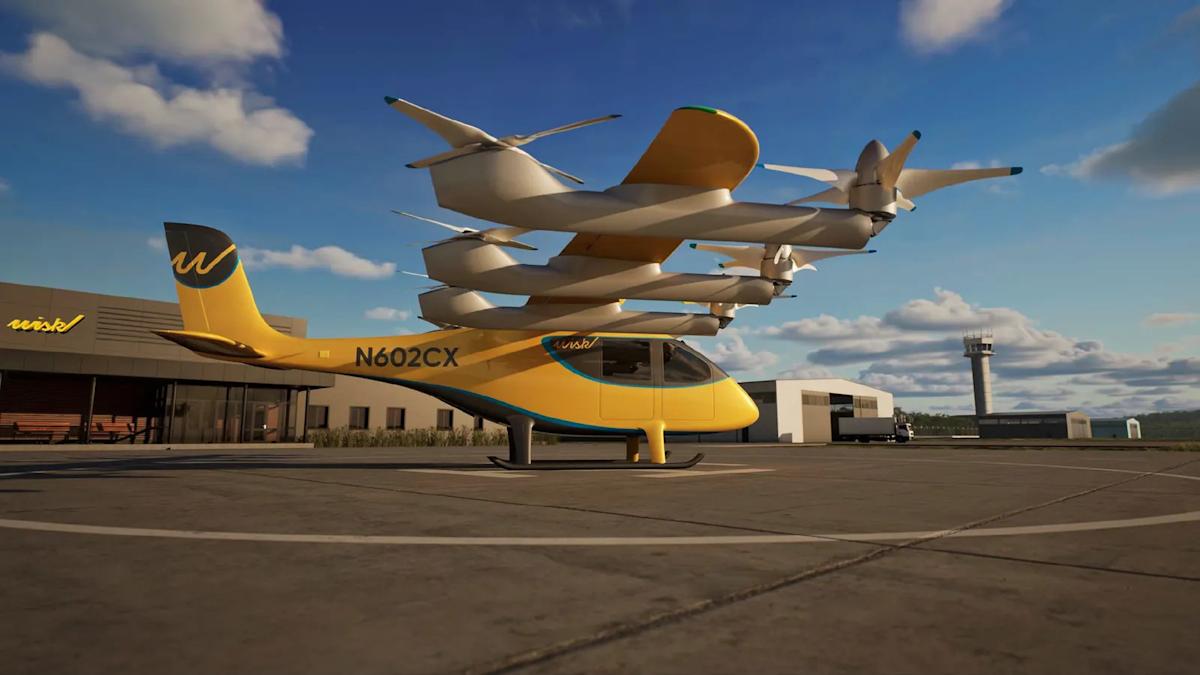Key Takeaways
- Wisk Aero, Boeing’s air taxi subsidiary, intends to launch autonomous flights in Houston, Los Angeles, and Miami by 2030.
- The company’s air taxis will operate without pilots, aiming for enhanced safety and addressing pilot shortages.
- Wisk is developing partnerships for multimodal transport and has agreements with local authorities in Miami and Houston.
Wisk Aero’s Vision for Autonomous Air Taxis
Wisk Aero plans to roll out autonomous commercial air taxi services in major U.S. cities, including Houston, Los Angeles, and Miami, by 2030. This initiative aims to address the growing demand for urban mobility solutions and combat pilot shortages. The announcement comes from J.C. Asencio, Wisk’s partnerships manager, during an interview. Miami was recently added to their list of operational cities, which also includes Brisbane, Australia, and Kaga, Japan.
Unlike competing companies such as Archer Aviation and Joby Aviation, Wisk’s aircraft will be fully autonomous, eliminating the need for onboard pilots. This design choice stems from the recognition that commercial flights rely heavily on autopilot systems for the majority of their duration, achieving 93% autopilot operation in flight. To ensure passenger safety, Wisk plans to operate its air taxis only in suitable weather and allow ground supervisors to intervene as necessary.
Originally founded in 2010 as Zee Aero, Wisk merged with Kitty Hawk, a venture backed by Google co-founder Larry Page, before being acquired by Boeing in 2023. Currently employing around 800 individuals, with a quarter being Boeing contractors, Wisk is in its sixth generation of air taxi development, focusing on certification for commercial operation.
The future Wisk envisions includes high-frequency flights within crowded air spaces. Asencio noted that this could require advanced digitization of air traffic control. Over the next couple of years, Wisk is concentrating on flight testing and securing FAA certifications, having already engaged in simulation exercises to prepare for varied flying conditions.
Collaboration is key to Wisk’s strategy. The company seeks multimodal partnerships to enhance user experience, positioning its air taxis as complementary to existing public transport systems. Agreements have been made with the Miami-Dade Aviation Department to establish vertiport locations at regional airports and with the University of Miami’s Engineering Autonomy Mobility Initiative for research in safety and technology development.
Additionally, Wisk expanded its footprint last year by partnering with Sugar Land, Texas, to develop air taxi services, and in 2022, entered a partnership with Long Beach, California, for Southern California operations. Support from both public and private sectors is strong, according to Asencio, emphasizing a collective interest in advancing air mobility solutions.
The content above is a summary. For more details, see the source article.















